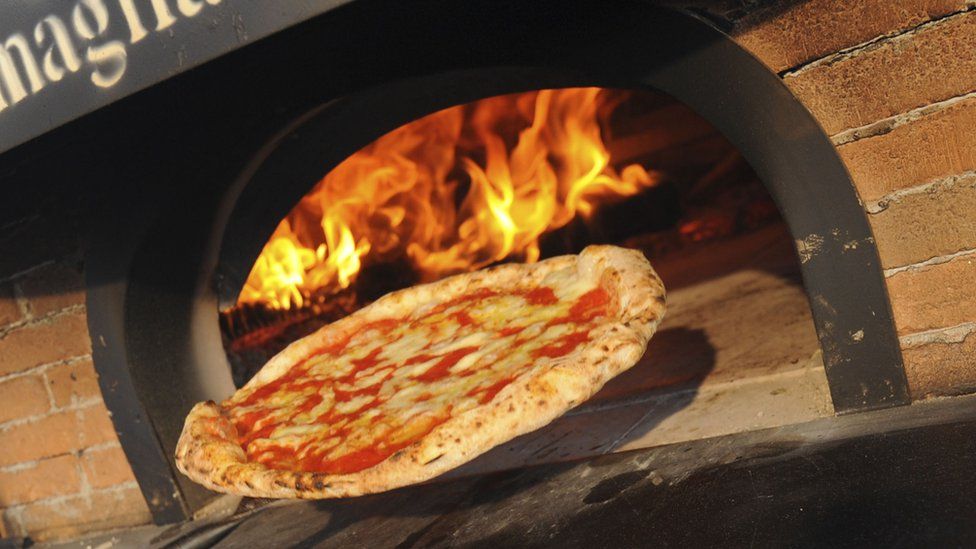Italy: Town bans pizza-making over soaring pollution
- Published

A town in Italy has imposed a temporary ban on the traditional way of pizza-making as a measure to curb soaring pollution.
An edict issued by the mayor of San Vitaliano, just outside of Naples, bans the use of wood-fired stoves in bakeries and eateries including pizzerias unless their owners install special filters to reduce air pollution.
The measure has been prompted by "utmost concern" over worsening air quality, and will stay in place until 31 March. It can be reintroduced later if the new filtering systems prove ineffective.
The ban will be enforced by police checks, and those found in breach of the mayor's order will face fines of up to 1,032 euros (£760, $1,130).
Bad air quality is a longstanding problem for San Vitaliano. According to Il Mattino newspaper, it is more polluted than Beijing, while nearby Naples - usually seen as one of Italy's worst offenders in terms of air quality - seems like "a perfumed garden" in comparison. In 2015, San Vitaliano exceeded the threshold for emissions 114 times, compared to 86 times in Milan, another badly polluted Italian city, the paper says.
But not everyone is convinced that pizza-making is the true culprit. Local residents and pizza makers held a protest on Sunday in front of the town hall against the mayor's order. "We can't be the cause of the smog," said one, according a report in Corriere della Sera. "Naples has many more pizzerias than San Vitaliano but doesn't have the same pollution levels. It's clear that they don't want to pinpoint the real cause. This order is a very costly mistake for us."
Use #NewsfromElsewhere to stay up-to-date with our reports via Twitter.